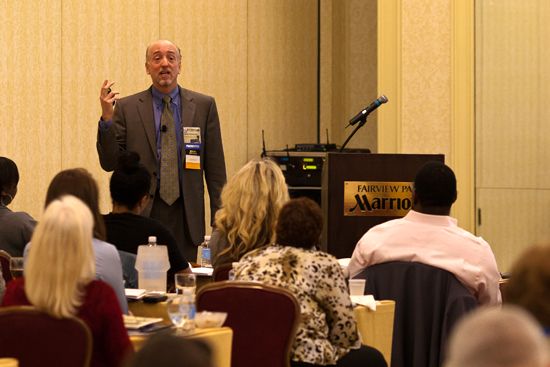
Are Consultants the Answer? (Part 4): Finding the right consultant, at the right time, with the right stuff
- 1.Are Consultants the Answer to Your Proposal Challenges? (Part 1)
- 2.Are Consultants the Answer? (Part 2): Why Companies Don’t Hire Outside Help
- 3.Are Consultants the Answer? (Part 3): How to find the right consultant
- 4.Are Consultants the Answer? (Part 4): Finding the right consultant, at the right time, with the right stuff
Many companies make the mistake of starting too early or waiting too long to secure consulting assistance
This four-part series started with a discussion of how proposal development consultants can help you solve your most common proposal challenges. Part 2 looked at some of the compelling reasons why companies hire outside help and why they don’t—even when they desperately need it. Part 3 described some strategies and tips for how (and where) to find good consultants. Part 4 concludes this series by providing some insights into finding the consultants that are right for you.
Timing is the key
Once you’ve done your homework, exhausted your personal and professional networks, and narrowed the field, there’s still no guarantee that you’ll find the right consultant when you need one. Like most things in life, being at the right place at the right time can make the difference between success and coming in second. Many companies make the mistake of starting too early or waiting too long to lock in the consultants they need.
Don’t start too early. The proposal consulting business is a fast-paced industry. Good consultants who are actively pursuing work are typically available for no more than one week between assignments. If you’re not in a position to make a hiring decision within the next 24-48 hours, you are likely wasting valuable time identifying consultants who will often take the first written offer or verbal commitment they get. The increasing trend of procurement schedule delays makes starting too early an easy thing to do. However, if you earn the dubious honor of starting too early on a regular basis, you will find it increasingly difficult for professionals in the consulting industry to take you seriously.
Don’t wait too long, either. Waiting too long to secure proposal assistance may seem painfully obvious. However, I consistently see a significant number of companies wait too long to do this. If you wait too long to get help, individual consultants are often scooped up by your competitors. Even worse, entire consulting companies may be prevented from providing assistance as a result of a conflict of interest with a competitor on the same opportunity.
Hedge your bet. If you think the proposal is imminent, and you haven’t developed the capture plan or proposal management plan, have no fear. Secure a consultant for one or two weeks in advance of the RFP. The time and money spent getting ready will be well invested.
The opportunity to see your consultant in action minimizes the risk of a poor fit when the RFP drops, and the planning deliverables can be used by your team and easily adopted by a replacement consultant (if necessary). If the RFP is delayed, and the consultant seems like a good fit, consider the following options:
- Look for other consulting opportunities in your company or another business unit to keep them busy until the RFP drops.
- Propose an alternate work schedule at a 75, 50, or even 25 percent level, which will enable the consultant to find other work in the meantime.
- Ask the consultant for a first right of refusal if they are offered a contract by another company.
If the consultant takes another offer, make sure you have an NDA or a non-compete clause on your agreement. If your consultant is lost to another opportunity, ask for recommendations of colleagues who have similar capabilities and experience.
Are your would-be consultants from Mars or Venus?
Finding the consultant that’s right for you is more than just a matter of timing. Will the consultant be a good fit and down to earth or more like an alien life form from another world?
The popular book, Men are from Mars and Women are from Venus (John Gray, 1992), highlights the differences between the stereotypic communication styles and emotional needs of the sexes. The book provides great metaphors for understanding the differences among consultant types and the importance of learning the consulting code of conduct. The different types of consultants go way beyond gender and may surprise you.
Conforming or non-conforming? The court jesters of the medieval days were appointed by kings to keep them happy. They were the ultimate conforming consultants. They told royalty what they wanted to hear, not what they needed to hear. Consultants should be conforming to a point, but kowtowing to management is usually not the path to success.
Consultants shouldn’t be afraid to tell you where you fall short and suggest ways to improve proposal efficiency (getting it in) and proposal effectiveness (getting the win). Look for consultants who can strike the perfect balance between knowing when to make recommendations (especially controversial ones), what to recommend, and how.
Generalized or specialized expertise? Companies are often confused over whether they should hire a single consultant (generalist) or multiple consultants (specialists) to meet their needs. Bid and proposal (B&P) budget constraints are often the driving force behind hiring a single consultant. This easy fix sometimes works, but comes at a premium hourly rate if the consultant is truly a jack-of-all-trades.
Alternatively, companies are often fixated on finding proposal consultants with highly specialized customer, contract vehicle, or even technical and functional experience. Looking for a top notch proposal manager or proposal writer with in-depth knowledge of the customer is like looking for the proverbial needle in a haystack. If you don’t have the customer knowledge you think you need to win on your proposal team, consider hiring an additional capture manager consultant with specialized expertise or not bidding at all.
Individual or company? Proposal development consultants come in all shapes and sizes and range from international, national, and regional firms at one end of the spectrum, to small boutique companies and individual consultants on the other. Putting all your faith and money into a single consultant (no matter how great) is never a good idea. Consultants, like most people, relocate, change jobs, get sick, and go on vacations. You can attempt to identify a number of individual consultants on your own, but be ready to invest a significant amount of time and effort. Using a consulting company (or companies) is the preferred alternative.
There are literally hundreds of proposal development consulting companies in. Greater Washington, DC alone. Some companies are limited by their full-time staff. If your project happens to coincide with one or two major procurements or requires highly specialized expertise, chances are that a small company with full-time staff may not have the breadth and depth of resources you need.
Other companies claim databases with hundreds of 1099 consultants. The stark reality is that many of these companies haven’t properly vetted, trained, or even prepped the consultants that they have targeted for your job. Resumes get re-branded from multiple sources and are essentially thrown over the electronic transom into your in box. Some of the more aggressive consultants are included in the databases of numerous competing companies. In some cases, the same resume will turn up from two or three sources, and before you know it, you’ve got a conflict of interest mess on your hands.
Local or out-of-town? No one really wants consultants from out of town —especially if there is an ample supply of qualified and available resources in your back yard. The additional expense, time required to process invoices and receipts, and inherent inefficiencies of travel are simply not worth it. If you are based in Washington, DC, for example, there is no reason to look anywhere else for full-time, on-site consultants. The only time you need to look outside your area is if you: 1) Are in a remote location with limited commercial or government commerce nearby, or; 2) Are in a proposal boom town, need remote or part-time support, and are looking for out-of-town bargain basement deals.
24-hour or 9-to-5? In this modern day of instant gratification and nanosecond response times, I am amazed to find proposal development consultants and companies who still work out of the old brick and mortar paradigm with receptionists and limited operating hours. The proposal consulting industry is too competitive and too fast paced to successfully operate this way. Look for consultants (and companies) who respond quickly to your needs and deliver same-day results anytime day or night.
A word for the wise (thaumaturge n.)
Many companies have the unrealistic expectation that the consultant they hire will be a thaumaturge (n. A performer of magic feats). Beware: Proposal development consultants are not always the magic silver bullet for all your proposal development needs. However, with careful planning, due diligence, understanding consulting do’s and don’ts, and a little luck, consultants will help you satisfy your most complex and pressing proposal challenges.



